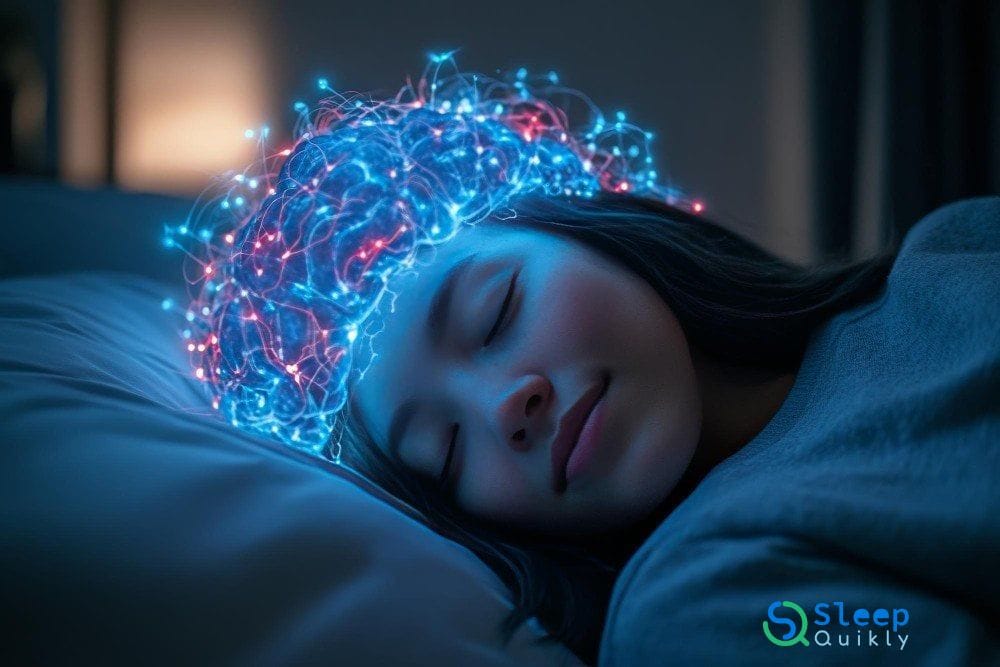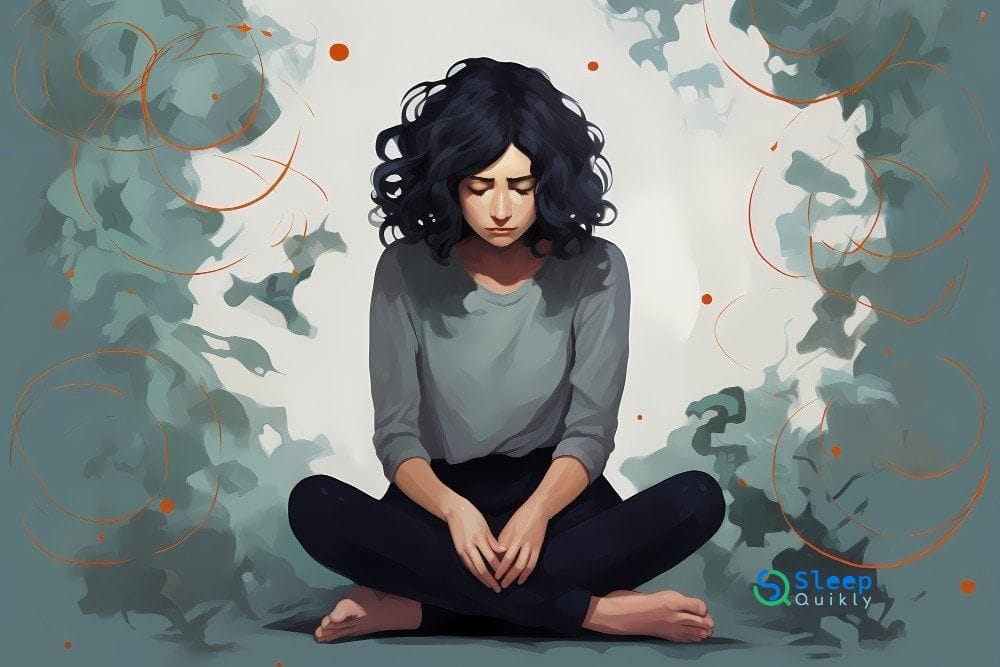Sleep and mental health are deeply intertwined in ways that many don’t fully understand. The phrase “waking up on the wrong side of the bed” isn’t just a figure of speech — there’s substantial truth behind it. Poor sleep can throw off your mental and emotional balance, with direct links to depression, anxiety, and even bipolar disorder.
The relationship between sleep and mental health is far more complex than it first appears. Researchers have long been fascinated by this bidirectional connection: not only do mental health disorders affect sleep, but sleep disruptions can also worsen psychiatric conditions. Ongoing studies are shedding light on how improving sleep can, in turn, enhance mental well-being.
How Sleep Influences Brain and Emotional Health

Sleep is a dynamic process, with brain activity ebbing and flowing across various stages, from light sleep to the deep, restorative phases of REM. Each phase plays a vital role in the brain’s housekeeping functions, such as memory consolidation, learning, and cognitive processing. However, sleep’s most fascinating influence lies in how it handles emotional regulation.
During REM sleep, the brain processes and organizes emotional information, acting as a natural therapy session. When sleep is cut short, particularly REM sleep, the brain struggles to manage emotional experiences, leading to heightened irritability, anxiety, and even depressive symptoms. The brain’s inability to properly store positive emotional content is one reason that sleep deprivation is so closely linked to mood disorders.
From Symptom to Cause: Sleep’s Role in Mental Health Disorders
For years, sleep issues were viewed as secondary to mental health problems — symptoms that appeared as a consequence of conditions like depression or anxiety. But now, scientists are rethinking that stance. It’s becoming clear that sleep disturbances are not merely symptoms but can actively contribute to the onset and severity of mental health disorders. This insight opens the door to treating sleep itself as a method for managing and even preventing mental health issues.
Obstructive Sleep Apnea (OSA) and Mental Health
OSA is another sleep-related condition that takes a toll on mental well-being. Characterized by pauses in breathing during sleep, OSA disrupts both sleep and oxygen levels in the body. People suffering from OSA are more likely to experience mood disorders, ranging from anxiety to full-blown depression. Given its effects on physical and mental health, treating OSA can improve a person’s overall sense of well-being.
Sleep and Specific Mental Health Conditions
Depression: More Than Just a Symptom
Depression, affecting over 300 million people globally, has a well-documented relationship with sleep. Around 75% of individuals suffering from depression experience insomnia, while others may grapple with hypersomnia, or excessive sleep.
The link between sleep and depression is circular: poor sleep can worsen depressive symptoms, while depression can disrupt sleep cycles. This vicious loop can make both conditions harder to treat. But here’s the bright side — focusing on improving sleep can serve as a complementary treatment for depression, breaking that negative feedback cycle.
Anxiety Disorders and Sleep Disruptions
Anxiety disorders are rampant, affecting nearly 20% of U.S. adults annually. Hyperarousal, a state of excessive alertness, is a hallmark of anxiety and often leads to insomnia. Many individuals with anxiety develop an anticipatory fear of bedtime, knowing that sleep won’t come easily, which only makes matters worse.

The connection between anxiety and sleep is particularly profound in those suffering from PTSD, where nightmares and hypervigilance disrupt sleep patterns, further contributing to a decline in mental health. In fact, studies show that 90% of veterans with PTSD report some form of sleep disturbance.
Bipolar Disorder: Sleep as a Mood Trigger
Sleep disruptions are a significant feature of bipolar disorder. During manic phases, people may sleep very little, while depressive phases often come with an overwhelming desire to sleep. This seesaw effect makes it hard to establish consistent sleep patterns, which can exacerbate the mood swings typical of bipolar disorder. Fortunately, improving sleep has been shown to stabilize mood and reduce the severity of both manic and depressive episodes.
Schizophrenia and Sleep
Schizophrenia, a disorder where reality becomes blurred, also comes with significant sleep disruptions. Insomnia and circadian rhythm issues are common, and medications to treat schizophrenia often make sleep problems worse. Researchers believe that sleep stabilization can help mitigate symptoms, making it a key focus in schizophrenia treatment.
ADHD and Autism: Neurodevelopmental Disorders Tied to Sleep
Attention-deficit/hyperactivity disorder (ADHD) and Autism Spectrum Disorder (ASD) both have documented ties to sleep disturbances. Children and adults with ADHD often struggle with falling asleep, waking frequently, and feeling excessively sleepy during the day. Similarly, people with ASD tend to experience chronic insomnia, which can intensify the core symptoms of the disorder.
A Bidirectional Relationship
Much like the mental health conditions we’ve discussed, sleep and neurodevelopmental disorders have a bidirectional relationship. Sleep difficulties can worsen ADHD and ASD symptoms, while these disorders, in turn, make quality sleep harder to achieve. Addressing sleep as part of the treatment plan is crucial for managing these conditions.
Steps to Improve Both Sleep and Mental Health
The deep connection between sleep and mental health suggests that interventions aimed at improving sleep can also enhance emotional well-being. However, because these conditions are deeply personal, tailored solutions are necessary. What works for one person may not work for another.
Cognitive Behavioral Therapy (CBT) and Sleep
CBT has proven effective for numerous mental health disorders, from depression to anxiety, and even sleep-specific issues like insomnia. CBT for Insomnia (CBT-I) is particularly powerful, as it targets the thoughts and behaviors that disrupt sleep. CBT has also shown promise in alleviating symptoms of psychiatric conditions by improving emotional regulation.
Optimizing Sleep Hygiene
Often, poor sleep hygiene is to blame for disrupted sleep. By establishing consistent sleep routines and creating an environment that promotes relaxation, many individuals can achieve better sleep and, consequently, improved mental health.
Here are some key strategies:
- Stick to a regular sleep schedule
- Create a calming pre-bedtime routine
- Avoid stimulants like caffeine and alcohol in the evening
- Keep the bedroom dark, quiet, and cool
- Exercise regularly, but not too close to bedtime
By addressing both mental health and sleep concurrently, individuals can experience a significant improvement in overall well-being, breaking the cycle of poor sleep and deteriorating mental health.


5 thoughts on “Sleep and Mental Health: The Connection”